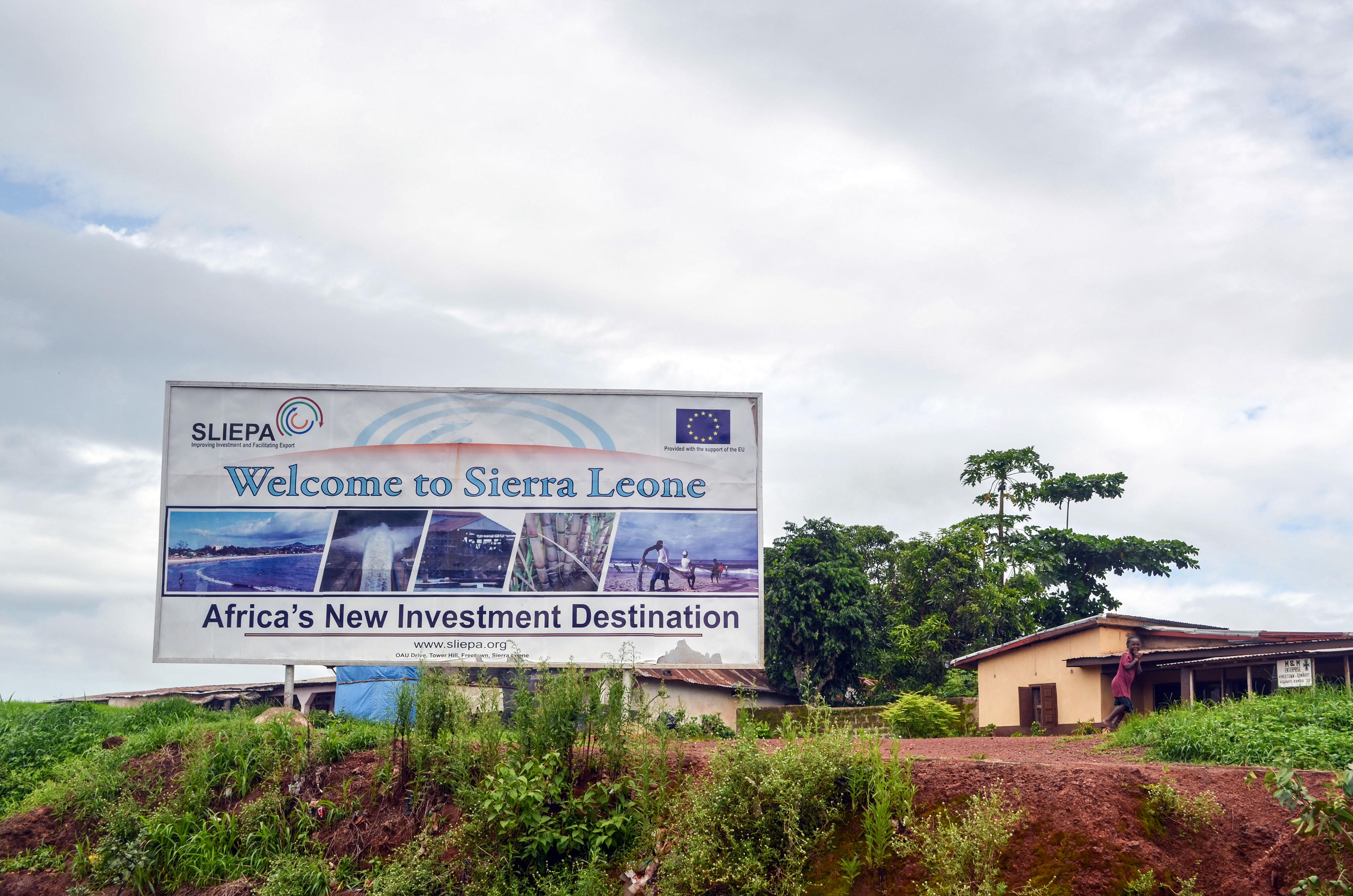Advertising sign at the border of Sierra Leone
Copyright© jbdodane, via flickr, CC BY-NC 2.0
Economic situation Great dependency on commodity exports and weak infrastructure
Sierra Leone is rich in natural resources (iron ore, diamonds, gold, bauxite, raw timber, coffee, cocoa), but the government is not able – and shows a lack of political will – to ensure that the wider population profits from these resources. Most people’s livelihoods depend on small and micro enterprises in the informal sector.
After the Ebola crisis, Sierra Leone witnessed a drop in economic growth of 20 per cent in 2015 – the effects of which can still be felt today. Since the COVID-19 pandemic in 2020, the economy has been in a critical state. In addition, development has also been affected by the impacts of Russia’s war of aggression in Ukraine. The International Monetary Fund (IMF) is forecasting economic growth of 4.9 per cent in 2026 (January 2026 prediction). At the end of 2025, the inflation rate was 10.5 per cent. In the Heritage Foundation’s Index of Economic Freedom (External link) Sierra Leone fell to 157th out of 184 countries in 2025 and its economy is now considered “repressed”.
Potential investors are deterred by the lack of legal certainty, in particular when it comes to land rights, and by the weak infrastructure. There are only a handful of paved highways and even in urban areas the transport routes are poorly developed. There is no centralised water supply, proper waste disposal or sewage system.
Only about a quarter of the population of Sierra Leone currently has access to electricity. The government has set itself the goal of improving energy supply and also wants to expand the use of solar energy and hydropower in pursuit of that goal. Sierra Leone is now part of the Mission 300, an initiative launched by the World Bank and the African Development Bank, and has concluded a 500 million US dollar compact with the US Millennium Challenge Corporation. Various project developments in the field of renewable energies could almost double the potential of renewables, from the current 160 MW to 300 MW by 2028. The majority of companies and governmental institutions rely on diesel generators. Private households primarily use local biomass (wood or charcoal) to meet their energy needs – resulting in deforestation and environmental degradation.
As at: 21/01/2026
